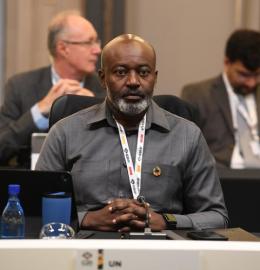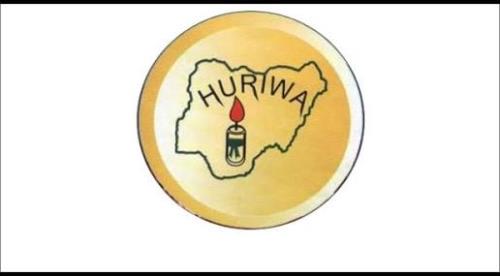Greece's Economic Growth From Tourism Faces A Dark Reality As Plastic Waste Continues To Erode Its Natural Wonders - Travel And Tour World
Wednesday, June 25, 2025

Greece, renowned for its stunning islands, ancient ruins, and crystal-clear beaches, continues to attract millions of tourists each year, contributing significantly to its economy. In 2023, over 32 million visitors generated nearly €20.5 billion in revenue, making tourism a cornerstone of the nation’s GDP. However, beneath this tourism success lies a growing environmental crisis: plastic pollution. As travelers flock to Greece’s pristine shores, the excessive use of single-use plastics—such as water bottles, food containers, and packaging—has led to a surge in waste that threatens the very natural beauty that draws tourists to the country in the first place. The stark contrast between the thriving tourism sector and the mounting plastic waste crisis highlights the urgent need for sustainable practices to preserve Greece’s iconic destinations for future generations.
Plastic has become an integral part of modern life, so ubiquitous that we often overlook its pervasive presence. Plastic infiltrates nearly every corner of our lives, from the packaging of food and personal care items to the polyester fabrics of our curtains and clothing. It has woven itself into the very fabric of modern existence, often unnoticed but ever-present, shaping the world around us in ways we can no longer ignore.
Even the device you’re reading this article on will eventually end up in a landfill, leaving behind an environmental legacy that lasts long after its use. The reality is that plastic isn’t just a household inconvenience; it’s a global issue, one that’s even infiltrating our travel experiences.
When we venture out to escape our daily routines, we often leave the weight of our plastic use behind—only to find that plastic follows us. The tourism industry, reliant on single-use products such as plastic water bottles, food containers, and vanity kits, is a major contributor to this mounting issue. While disposable plastic items ease operational burdens for hotels, resorts, and airports, they generate significant waste that piles up at tourist hotspots, creating environmental challenges that persist long after tourists return home.
Consider Greece, a country known worldwide for its stunning islands, ancient ruins, and idyllic beaches. In 2023, over 32 million visitors flocked to Greece, contributing nearly €20.5 billion to its economy, a sum that accounts for approximately 20% of the country’s GDP. While tourism continues to thrive, there’s a dark side to this success: plastic pollution.
Staggeringly, Greece produces approximately 700,000 tonnes of plastic waste each year, a massive environmental burden that threatens the country’s pristine landscapes and ecosystems.
This staggering amount is enough to fill roughly 51,000 garbage trucks, each carrying 15 tons of waste. If these trucks were lined up, they would stretch for miles, symbolizing the overwhelming burden of plastic pollution facing the country. To make matters worse, a significant portion of this waste ends up in neighboring countries, such as Bulgaria, which accepted 48,000 tons of Greek plastic waste in 2022—a figure that has doubled since 2020.
For tourists drawn to Greece’s crystal-clear waters and sun-kissed beaches, it’s sobering to realize that the very experiences that attract them are being threatened by the plastic waste generated by mass tourism.
The Mediterranean Sea, which stretches along Greece’s coastline, stands as one of the most heavily polluted bodies of water in Europe, choking under an overwhelming influx of plastic waste.
Its semi-enclosed nature exacerbates the problem, trapping plastic debris and preventing it from dispersing into the open ocean. The Mediterranean’s unique biodiversity makes it an essential ecosystem, but the influx of plastic waste is wreaking havoc on local wildlife.
More than 134 species, including endangered ones like the loggerhead sea turtle and short-beaked common dolphin, are threatened by plastic pollution. As larger plastic items break down into smaller microplastics, marine life consumes these toxic particles, unaware of the dangers. These microplastics enter the food chain, posing risks not only to marine animals but also to humans who rely on seafood as a primary food source.
In 2015, global plastic production reached a staggering 400 million tonnes, and by 2050, it’s estimated that 12 million metric tonnes will end up in the environment, significantly affecting ecosystems worldwide. Oceans are particularly hard hit, as marine animals mistake plastic for food. This leads to internal injuries, malnutrition, and even death when animals’ stomachs fill with indigestible plastic.
A staggering fact underscores the severity of the plastic crisis: for every individual on Earth, there are a shocking 21,000 pieces of plastic contaminating our oceans.
Marine creatures like sea turtles, whales, and dolphins can become entangled in larger plastic debris, leading to immobilization and death. Every year, 100 million marine animals and birds die due to plastic pollution and discarded fishing nets.
While some Greek islands, such as Samos and Paros, have made significant strides in combating plastic pollution, many popular tourist destinations still lack the infrastructure to manage the waste generated by millions of visitors. Islands like Santorini, Mykonos, and numerous cruise ports are overwhelmed by plastic waste, with inadequate recycling systems to process it effectively.
In Greece, nearly 80% of waste is buried, which is double the EU average. Only a fraction of the waste received by recycling plants is properly processed. Much of the rest ends up in the oceans or in landfills, exacerbating the environmental strain on the country’s ecosystems.
Addressing Greece’s plastic pollution crisis requires a multifaceted approach that integrates infrastructure improvement, behavior modification, and public education.
: The local communities and tourists alike need to be educated about the importance of proper waste disposal and the availability of plastic alternatives. This can be achieved through signage, school programs, and collaborations between local governments and environmental organizations to spread awareness.ic pollution is not just a challenge for Greece—it’s a global crisis affecting ecosystems worldwide. But Greece has the opportunity to lead by example. By adopting evidence-based practices and encouraging sustainable tourism, Greece can set a new standard for eco-conscious travel in the Mediterranean. Balancing economic success with environmental stewardship will allow the country to preserve its natural beauty for future generations.
: Greece must invest in better waste management and collection systems, particularly on islands that struggle with handling high tourist volumes. Expanding recycling facilities, improving waste collection logistics, and introducing more efficient waste disposal methods are essential steps toward combating the issue.
: Public awareness campaigns, eco-certifications for tourism businesses, and the promotion of sustainable practices are critical to reducing plastic consumption. Tourists must be educated about their environmental impact, and incentives for eco-friendly choices should be made more accessible.
Greece’s booming tourism industry, attracting 32 million visitors and generating €20.5 billion in 2023, faces a growing environmental crisis from plastic pollution. Despite its economic success, the country’s iconic beaches and marine life are being overwhelmed by the waste generated by mass tourism.
As travelers, we must evolve our habits, moving away from convenience and toward sustainability. Only then can we ensure that the natural landscapes and vibrant ecosystems that make destinations like Greece so attractive are preserved for years to come. The future of tourism—and the planet—depends on this shift toward more responsible travel practices.










